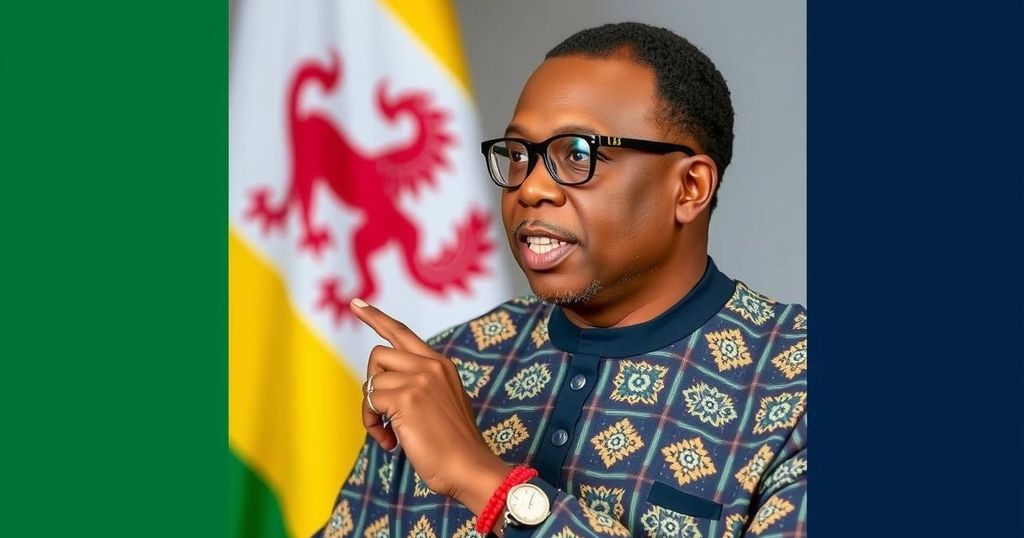Kofi Amoabeng Aspires to Presidency, Advocates for Governance Reform in Ghana
Prince Kofi Amoabeng, founder of UT Bank, revealed his aspiration to become President of Ghana, expressing concerns over the current governance system and advocating for reforms to enhance political integrity. He emphasized the need for a shift from one-person, one-vote electoral politics and urged the government to create a conducive environment for business growth to improve Ghana’s economic performance.
Prince Kofi Amoabeng, the founder of the now-defunct UT Bank, has expressed his long-standing aspiration to become the President of Ghana. In an interview with Konnected Minds, he stated emphatically, “If I were to choose between my biggest options in life, I would choose to be the president of Ghana.” He highlighted the need for a reformation in Ghana’s governance system, believing that the current democratic framework is insufficient to address the country’s unique challenges. Amoabeng pointed out that the political system is hindered by financial obligations that corrupt elected officials, stating, “The only way to do that is to be corrupt.” He also called for a reevaluation of the electoral process, advocating for a system based on representation rather than the one-person, one-vote principle. Furthermore, he urged the government to foster a business-friendly environment to stimulate economic growth, as he believes the health of the economy relies heavily on the prosperity of business leaders, or CEOs. Kofi Amoabeng’s reflections extend to the collapse of his former institution, UT Bank, which, along with Capital Bank, had its license revoked by the Bank of Ghana due to insolvency. The failures of these banks prompted a wider crackdown on numerous financial institutions by the Central Bank, including the establishment of the Consolidated Bank Ghana Limited. Amoabeng stresses that for Ghana to advance significantly, political leaders must collaborate to create conducive conditions for business, thus enhancing the nation’s GDP.
The comments made by Prince Kofi Amoabeng come against a backdrop of ongoing discussions concerning Ghana’s political and economic landscape. As a former military officer and businessman, Amoabeng’s insights are rooted in his experiences during his banking career and his observations on governance. The discussion on political reform is timely as Ghana navigates challenges related to corruption, economic management, and the need for sustainable governance that aligns with the country’s specific realities. The issues raised also relate to the broader crises faced by the banking sector, particularly after significant governmental interventions due to the insolvency of numerous banks.
Prince Kofi Amoabeng’s fervent desire to become President of Ghana underscores his belief that significant reforms are required within the nation’s governance structure. His critique of the current democratic system points to a broader conversation regarding electoral integrity and accountability. Additionally, his call for an environment conducive to business growth could signal a path forward for economic revitalization. The collapse of UT Bank serves as a crucial reminder of the financial challenges that need to be addressed within Ghana’s banking sector, emphasizing the importance of ethical governance and sustainable economic practices.
Original Source: www.ghanaweb.com




Post Comment